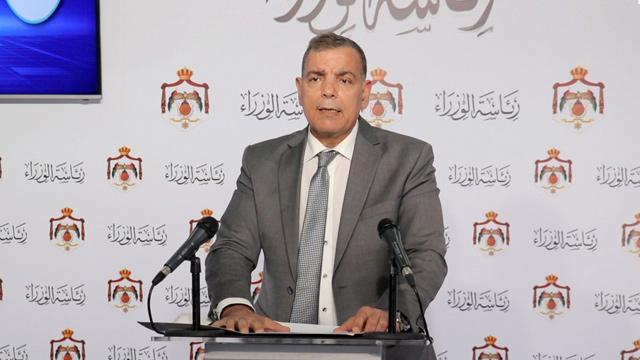- Local News
- Mon-2020-09-21 | 03:31 pm

Nayrouz News Agency :
A total of 239 COVID-19 cases, including 231 local infections, were registered in the Kingdom on Sunday, increasing the caseload in accredited hospitals since the outbreak of the pandemic to 4,779, according to Health Minister Saad Jaber.
The local cases included 149 infections in Amman, 22 in Karak, 13 in Balqa, five in Irbid, 23 in Zarqa, 12 in Maan, a case in Ajloun, and six in Mafraq, he said.
The number of cases since August 8 of 2020 has reached 3,270, the minister said.
Cases from abroad comprised eight individuals — one from Egypt, four from Palestine, including a medical tourist, one from the US, one from Saudi Arabia and another from Kuwait — all who have been in quarantine at designated hotels.
A total of 172 recovered patients left hospitals on Sunday, 18 from Prince Hamzah Hospital and 146 from the Dead Sea quarantine site for COVID-19 patients, in addition to eight from Queen Alia Hospital, bringing the number of recoveries to 2,851.
Speaking during a joint press briefing with the State Minister for Media Affairs Amjad Adaileh and Official Spokesperson for the National Anti-Pandemic Committee Nathir Obaidat, at the Prime Ministry, Jaber said that a total of 13,437 random virus tests were conducted on Sunday, bringing the cumulative number of coronavirus tests administered since the beginning of the crisis to 1,070,621.
The health minister, upon the recommendations of the committee and after the approval of the Cabinet, said that children tested positive for COVID-19 will undergo quarantine in their homes after their parents sign a pledge that they will take care of their children and abide by quarantine rules.
Adaileh said that press briefings will be held during the official working days, noting that the move is intended to ensure the flow of information at a pace that serves the public and keep them informed with developments, the Jordan News Agency, Petra, reported.
Obaidat said that the committee's recommendations are based on scientific foundations and guidelines to be put before decision makers.
He noted that the recommendations are "changing dynamically and developing in accordance with the epidemic stages and the data emerging on the epidemiological map”.
The official added that "the pandemic has begun the stage of social spread", which necessitates reviewing strategies, plans and policies in place to address this stage.
Obaidat added that the committee will update an integrated plan that includes home-quarantine and self-isolation, in addition to a monitoring plan, follow-up monitoring, tracing contacts, laboratory tests, treatment protocol and building the capacity of health institutions.
The committee recommended the introduction of self-isolation to children and health staff, he added.
Self-isolation can be expanded in the future to include wider groups of people tested positive for COVID-19, he said, pointing out that the committee has begun to set the rules of home quarantine and isolation.









